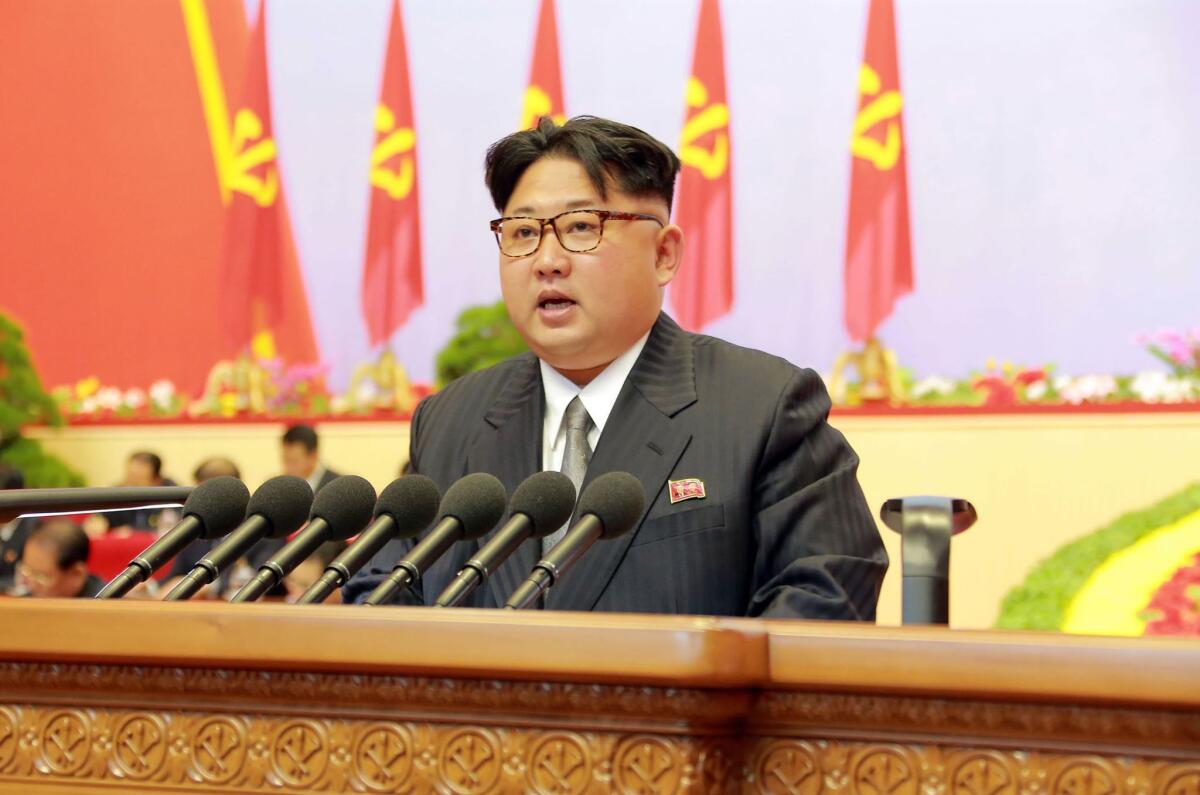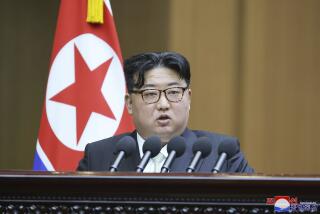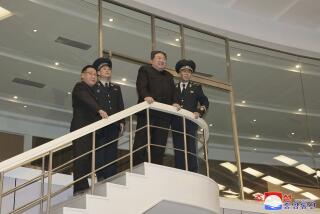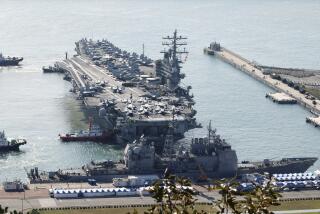Readers React: To stop North Korea, the U.S. should talk about putting nukes in South Korea

North Korean leader Kim Jong Un at the 7th Workers Party Congress in Pyongyang on Sunday.
To the editor: In their creative freeze proposal to stem North Korea’s nuclear program, Robert Litwak and Robert Daly implicitly argue that the route to induce China’s cooperation is U.S. abstention from new ballistic missile defense deployment in South Korea. (Beijing opposes deployment.) (“How to put North Korea’s nukes on ice,” Opinion, May 6)
But leaving the South vulnerable to the North’s nuclear intimidation even under a freeze is asking Seoul to bear too much.
Still, the freeze, however imperfect as a proliferation containment measure, is a good idea. How to get Beijing on board without sacrificing South Korea’s security remains the issue. One alternative would be public discussion about returning U.S. nuclear weapons to the South, which were withdrawn in 1991.
Just mentioning that would draw China’s concern and perhaps be leverage enough to get its leadership to press North Korea to halt further nuclear development.
Bennett Ramberg, Los Angeles
The writer served as a policy analyst in the State Department’s Bureau of Politico-Military Affairs in the George H.W. Bush administration.
..
To the editor: Litwak and Daly don’t seem to have considered the possibility that North Korea’s push to develop a nuclear arsenal could be quite rational behavior on its part.
The U.S. and its allies have demonstrated their willingness to invade countries whose regimes they find objectionable. North Korea, along with Iran and Iraq, was named by President George W. Bush in 2002 as a member of the “axis of evil, aiming to threaten the peace of the world.”
The regime in Iraq, despite not having weapons of mass destruction, was toppled by the U.S. invasion in 2003. Iran, despite having agreed with the U.S. and European countries to limit its ability to produce a bomb, is still under threat of attack, with U.S. presidential candidates having promised to “tear up” that deal if elected.
Recall Moammar Kadafi, who dismantled Libya’s nuclear program in 2003 but was deposed and killed in 2011.
North Korea’s behavior could simply indicate that it is following the lessons of recent history to ensure its survival.
Gerome Torribio, Pomona
..
To the editor: The generation of Americans born after World War II remembers it well: the frequent duck-and-cover school drills (our last pathetic defense against nuclear annihilation), the school assemblies for the viewing of a government-sponsored documentary depicting the effects of a nuclear explosion, and the dull ever-present fear pervading our otherwise “perfect” post-war lives.
Our children never had to endure this. Instead, they are blessed with little concern for a renegade nation that will soon possess possibly 100 nuclear weapons and the capability of delivering them to the U.S.
It amazes me that this millennial dictator Kim Jong Un can threaten to annihilate us preemptively and we all seem to shrug it off. Can you imagine if Soviet Premier Nikita Khrushchev had said these words? He wouldn’t have dared because of a U.S. response.
Our government’s response to North Korea is lame by comparison.
John Francis Smith, Studio City
Follow the Opinion section on Twitter @latimesopinion and Facebook
More to Read
A cure for the common opinion
Get thought-provoking perspectives with our weekly newsletter.
You may occasionally receive promotional content from the Los Angeles Times.






